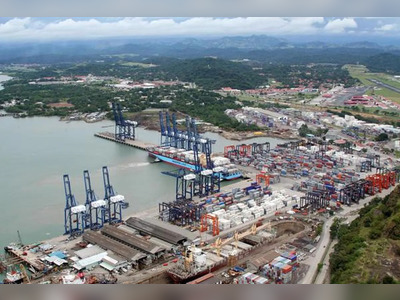
Chris Mason: Conservative Party's Outlook Turns Gloomy Following Jenrick's Resignation
Prime Minister Rishi Sunak is struggling to establish a viable strategy to transfer migrants to Rwanda, meeting legal, practical, and political challenges.
He must navigate legal hurdles implied by the Supreme Court's previous dismissal of his plan while aiming to implement it before the next general election. Politically, he faces the delicate task of appeasing both moderate and hardline factions within his party.
Jenrick, who recently resigned as immigration minister, doubted the success of Sunak's plan, which he discussed with the PM for a week. Jenrick's resignation is significant because reducing illegal immigration is crucial for many Conservative MPs and voters.
This resignation exposes Sunak to potential political instability, reminiscent of the tumultuous periods under his predecessors, Liz Truss and Boris Johnson, and could risk a confidence vote from his party. One Tory MP expressed dissatisfaction with the party's direction and readiness for elections, while another believed Sunak would survive a confidence vote despite the possibility it could occur.
Conservative MPs privately express concerns about the lack of a clear leadership strategy. Simultaneously, the government attempts to showcase its progress on immigration, highlighted by Home Secretary James Cleverly's visit to Kigali. Yet doubts linger as the freshly resigned Jenrick criticizes the Rwanda plan.
The question now is whether Jenrick's resignation will drive a wider rebellion, putting Sunak's leadership at risk, or if the party will see resistance as self-indulgent during a delicate time. While speculation about leadership challenges is rampant in Westminster, it remains uncertain whether this will lead to substantial change or merely reflect Conservative discontent.
Jenrick, who recently resigned as immigration minister, doubted the success of Sunak's plan, which he discussed with the PM for a week. Jenrick's resignation is significant because reducing illegal immigration is crucial for many Conservative MPs and voters.
This resignation exposes Sunak to potential political instability, reminiscent of the tumultuous periods under his predecessors, Liz Truss and Boris Johnson, and could risk a confidence vote from his party. One Tory MP expressed dissatisfaction with the party's direction and readiness for elections, while another believed Sunak would survive a confidence vote despite the possibility it could occur.
Conservative MPs privately express concerns about the lack of a clear leadership strategy. Simultaneously, the government attempts to showcase its progress on immigration, highlighted by Home Secretary James Cleverly's visit to Kigali. Yet doubts linger as the freshly resigned Jenrick criticizes the Rwanda plan.
The question now is whether Jenrick's resignation will drive a wider rebellion, putting Sunak's leadership at risk, or if the party will see resistance as self-indulgent during a delicate time. While speculation about leadership challenges is rampant in Westminster, it remains uncertain whether this will lead to substantial change or merely reflect Conservative discontent.











